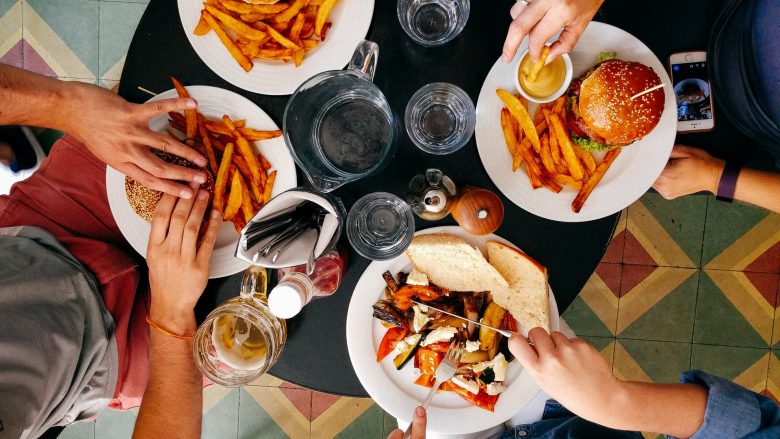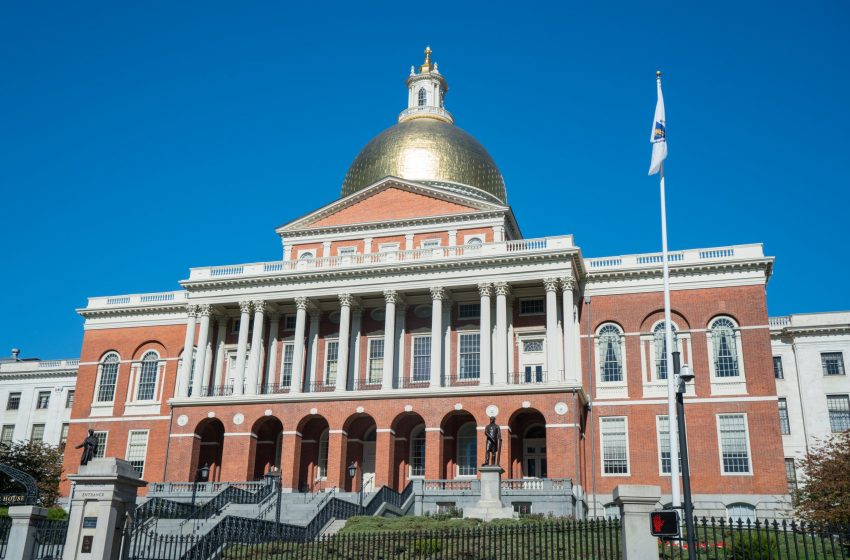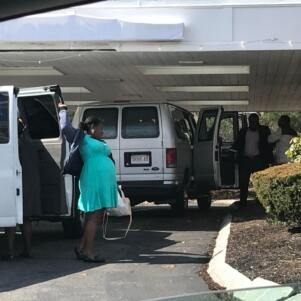How Many Massachusetts Restaurants Will Survive State’s ‘New Normal’ Re-Opening?
By Tom Joyce | May 14, 2020, 9:43 EDT

Some Massachusetts restaurant owners are wondering whether the state’s phased reopening from the coronavirus emergency shutdowns might make it hard for many to stay in business.
All restaurants in the state are currently takeout-only, and many owners are eager to resume their businesses once the state allows it.
But what will the restaurant business look like? And when?
Massachusetts Governor Charlie Baker has been hinting this week at major changes to the way all businesses in the state conduct business without offering details, saying those will come when his Reopening Advisory Board issues a report Monday, May 18.
That’s leading some observers to fill in the blanks.
Gary Frascarelli, owner of Gary’s Ice Cream in Chelmsford, told New Boston Post that he is familiar with the thinking of the state’s Reopening Advisory Board, although he would not reveal the extent of his involvement.
He predicted major changes and major delays.
“If people are expecting to go to restaurants in Massachusetts in the near future, that’s not going to happen,” Frascarelli told New Boston Post in a telephone interview Tuesday. “I’m thinking from what I’m hearing through the grapevine, we’re probably looking at mid-August.”
Frascarelli said there are many obstacles restaurants will need to overcome, including kitchen remodeling.
“If they’re going to require social distancing, they’re going to have to tear everything down and make new ones,” he said.
He noted that typically line kitchen employees are a foot or two apart when working, and it could be difficult to find the room necessary for kitchens to operate the way they normally would.
Additionally, Frascarelli said he is hearing that restaurants might have to have reduce their capacity by about 60 percent. He said that if a restaurant seats 100 people, it may be forced to limit seating to 40 people at a time — including employees.
Some restaurants, he said, might only be able to accommodate 25 people at once.
“That’s going to put a good half or more of the restaurants in the state out of business,” Frascarelli said. “They can’t survive financially. It’s gonna be tough but unfortunately, it’s going to have to be done.”
Some critics of the governor’s handling of the coronavirus emergency have suggested the state has been favoring big businesses with connections over small businesses without them, noting that in the case of retail, for instance, big-box stores have been allowed to stay open while many mom-and-pop stores have had to close.
When asked if the Reopening Advisory Board might be favoring larger restaurants that would like to regulate their smaller competitors out of business, Frascarelli was quick to say no.
“Not at all,” he said. “This is the Massachusetts Restaurants Association that is guiding the governor’s office. They’re restaurateurs and suppliers. They want to see restaurants open, but they want to see it done safely.”
A spokesman for the Massachusetts Restaurant Association could not be reached for comment on Tuesday or Wednesday.
Other restaurant owners contacted by New Boston Post said they’re worried about what’s coming for their businesses when they are finally allowed to open their doors to customers again.
One problem is finding enough help.
Walt Winnowski, manager and spokesman for the Lobster Pot in Provincetown, noted that some erstwhile employees are making more from unemployment checks than they would by going back to work – a situation Rhode Island’s governor acknowledged last week.
Some restaurant owners may be scrambling to fill shifts while they’re scrambling implement new health precautions.
“Restaurants either deal with them individually or not reopen,” Winnowski told New Boston Post in an email message Wednesday. “Simple choices centered around safety for the general public/customers, employees, and the bottom line. More complicated are the peripheral issues around reopening: inequities within the PPP funding program (i.e. employees making more money on UI) and the lack of support programs for foreign workers stuck in the country as a result of the shutdown.”
Markus Ripperger, the president and chief executive officer of the Hampshire House Corporation, which operates the famous Cheers bar at the base of Beacon Hill and as well as a restaurant in Quincy Market, both in Boston, said his business will work towards adapting to the new reality, and hopes that the safety measures aren’t just a “blanket six feet rule.”
“We are looking to install dividers between the tables and even on the bar between the customer and the bartender but also between the groups of patrons. With a little creative thinking, we can keep our beloved restaurants open, safe for all guests and employees. Use of masks, gloves, food covers, new service techniques, single-use menus, condiments, hand sanitizers etc. … .are all a definitive new normal.”
Mr. Mac’s co-founder Patrick Cain said he is confident his business model will continue to work.
He noted that the restaurant’s two locations in Massachusetts (Tyngsboro and Westford) have drive-thru windows for those who call ahead, so they will be able to cater to people who don’t want to go inside.
“While the guidelines may not fit with their unit economics, restaurant owners will have to adapt as best they can, and hold on,” Cain wrote in an email message. “That will be the biggest challenge facing most restaurants as they reopen. This will be a herculean task, especially after what they have already endured. And unfortunately, the road back will be to a very different and unfamiliar destination for most. The important thing, now more than ever, is to watch and listen to your customers. They will tell us, and the government, what they’re comfortable with and what they’re are not comfortable with. The big problem for us is — they don’t yet know themselves.”
State Representative Alyson Sullivan, a Republican from Abington, told New Boston Post she is concerned about the viability of restaurants on the South Shore and elsewhere in the state.
“The restaurant industry is vital to our economy and to the financial well-being of tens of thousands of families throughout the Commonwealth,” Sullivan said in an email message. “I understand that restaurants employ close to 300,000 people. More than half have been laid off due to the mandated closure by our government. Sadly, some of these restaurants may never reopen and some of these employees may never return.”
Sullivan said she is confident that when restaurants open back up, they will prioritize the safety of their employees and customers. She also said she expects more people to make reservations rather than simply drop in to eat.
She also pointed out that opening restaurants back up would benefit the people, as well as the state’s finances.
“In addition to the employment, the benefits of socializing, even with some additional distance, and the optimism we will experience as we move towards normalcy, restaurants provide important tax revenue to the state and the local community,” she said. “That revenue is critically important, especially now.”
Sullivan took a shot at the categories of the reopening phases that the governor announced earlier this week. The fourth phase is called “New Normal,” and, although state officials have not offered many details, it does not envision going back to life the way it was before the coronavirus emergency.
“I remain hopeful and optimistic that we will be back to normal and will never be satisfied with some ‘new normal’,” Sullivan said. “Bottom-line, let’s give people the option to decide what is best for them and their families.”
The governor’s press office did not respond to requests for comment.











